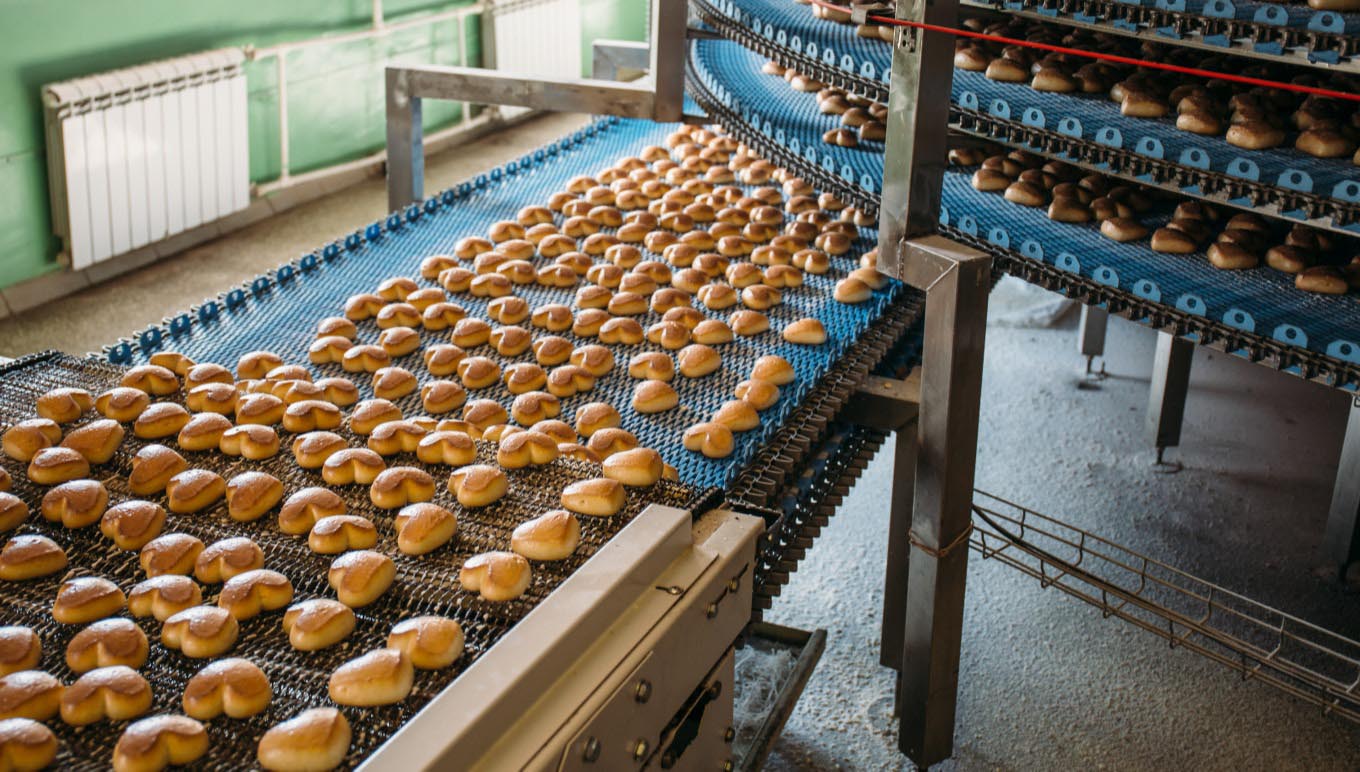Batch Management: What It Is, Why It Matters and How ERP Is Key to a Sound Approach
Batch Management: What It Is, Why It Matters and How ERP Is Key to a Sound Approach
Batch Management: What It Is, Why It Matters and How ERP Is Key to a Sound Approach
19 Jan 2022
 John McCurdy | Senior Content Writer, Marketing
John McCurdy | Senior Content Writer, Marketing
The food and beverage world moves fast, both at the higher industry level and in day-to-day operations at individual businesses. When you’re focused on maximizing uptime and getting the most out of your materials and machinery, it can seem like the flow of ingredients and products in your facility is one long, endless manufacturing stream.
Of course, it’s impossible for the production process to carry on indefinitely, without a set beginning or end. That’s why most companies subdivide their finished goods by batch, grouping together all those manufactured in a single run, using the same ingredients, processes and equipment in a set timeframe.
Your company might use the word “lot” or another similar term for this concept, but the practice serves the same purpose—delineating what was produced when and under what specific circumstances. You’d expect that there are few differences between batches and even fewer between items in an individual batch, but that’s not necessarily the case without a sound approach to batch management.
In this post, we’ll define this term, illustrate why it matters for your organization’s success, and explore some of the ways that enterprise resource planning (ERP) technology built for food and beverage manufacturers can optimize your approach to the process.
What Is Batch Management?
Batch management aims to create consistency from product to product and run to run, as well as making the best use of your supplies, minimizing waste and streamlining manufacturing processes. It is a concept closely tied to both quality assurance and operational efficiency.
Some key components of a good batch management strategy include standardized, routine quality checks; precise recipe and formula procedures; and automation of steps more easily and accurately handled by technology. All of these practices are undertaken with the goal of achieving reliable results and minimizing room for error.
All this being said, trying to execute your batch management plans manually by tasking your employees with additional responsibilities is not ideal. Advanced solutions exist that can relieve your staff of tasks that are tedious but necessary while also executing with greater accuracy—but we’ll cover this in more detail below.
Why Is Batch Management Important?
Today’s consumers are more discerning than ever, and meeting their expectations is key for the profitability of your business. Customers will come back to purchase more of your products if they’re consistently pleased with the quality, but they’ll also move along to another offering quickly should your brand let them down with an item that deviates too far from the norm.
Batch management is just as important for getting the most out of your ingredients. Only with accurate measurements and standardized procedures can you be sure that the correct quantities, temperatures and times are used for manufacturing your goods. Without the right practices and technology in place, you could be wasting materials or even running the risk of having to scrap entire batches due to imperfections.
Instead, with excellent batch management, you can be confident in both your company’s reputation for excellent products and the optimal use of your materials and equipment. That, in turn, lends flexibility to your operations and makes scaling up or down much easier should demand fluctuate or other circumstances change.
How Do ERP Solutions Facilitate Batch Management?
Even if your food and beverage manufacturing organization is highly focused on a relatively small suite of offerings, that’s still a considerable amount of product and practice information for an individual factory floor worker to internalize and implement. Likewise, taking readings and setting controls by hand leaves room for the liabilities of human error and memory.
That’s why trusting purpose-built food ERP systems for these critical considerations is the way to go. With one of these robust, all-in-one platforms in place at your facilities, you can unlock the following advantages with regards to your batch management efforts:
More precise ingredient quantities and less waste – ERP offerings built for the food and beverage industry come with robust recipe and formula features and can be integrated with your machinery to make sure that the right amounts of materials are dispensed for your batches, ensuring consistency and preventing excess consumption.
Accurate mixing, temperature and time settings – For great taste, texture and appearance, the exact specifications of your production processes need to be followed to the letter each and every time. Handling this with the intelligent technology of ERP solutions is the best way to achieve reliably excellent results.
More efficient changeovers – When it comes to starting up a new run of different product, trusting an ERP system to select the appropriate parameters (including needed ingredients and machinery) is the best way to make the transition quick, accurate and error-free.
Better individual employee effectiveness – You hired your staff for their expertise in food manufacturing and the difficult tasks that can only be carried out by a trained professional. Offloading the simpler tasks of data capture to your food ERP lets your people focus on what they do best and facilitates better resource utilization in the long-term.
Reliably excellent product quality – We’ve mentioned several times how batch management can lead to more dependable results in the area of quality assurance, and food and beverage ERP are uniquely suited to both performing all necessary quality checks and flagging deviations in their unified, organization-wide database so that issues can be addressed.
All these benefits and more can be at your fingertips, but only with the right platform at your disposal.
A Dedicated Solution for Definite Results
We’ve mentioned more than once the need for not just any ERP, but one specifically built for the food and beverage industry. The importance of that point can’t be overstated, as the process manufacturing that your company engages in is very different from the discreet manufacturing of, say, a consumer goods or industrial manufacturer.
At Aptean, we understand that the needs of food and beverage businesses are unique, and not just any system off the proverbial shelf will do. For that reason, we built our own industry-specific food and beverage solution. With organizations like yours in mind, we made sure to pack in features suited to the challenges present in each of the segments of the food and beverage world.
You also need tools for traceability, supply chain visibility, inventory and financial analytics, so those functionalities are also a part of the solution out of the box. What’s more, we offer both traditional on-premise installations as well as flexible cloud deployments with redundant offsite servers and dedicated IT teams for 99.9% uptime or better.
For further proof of the quality of Aptean’s food ERP, consider our recent honor as the recipient of Frost and Sullivan’s 2022 Product Leadership Award for North American ERP Software for the Food and Beverage Industry. We also have thousands of successful implementations of our solution accomplished to date and a proven track record for improving our clients’ practices and overall performance.
Ready to hear more about Aptean Food & Beverage ERP and how it can improve your batch management processes, among other advantages? Contact us today, or request a personalized demo.
Aptean ERP klantensuccessen
Deze 10 klanten uit verschillende voedingsmiddelen- en drankensectoren bereikten meer met onze oplossing.



